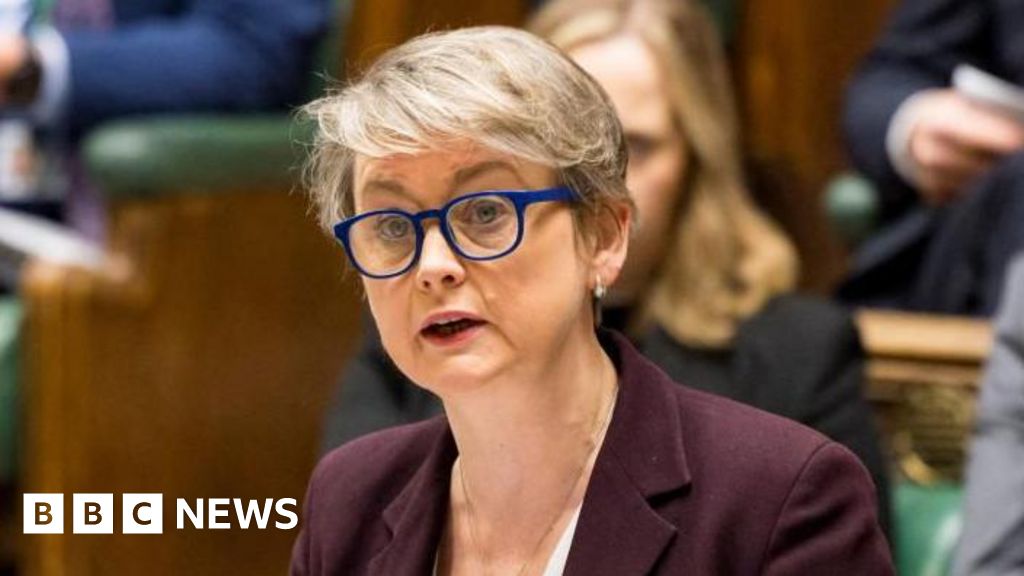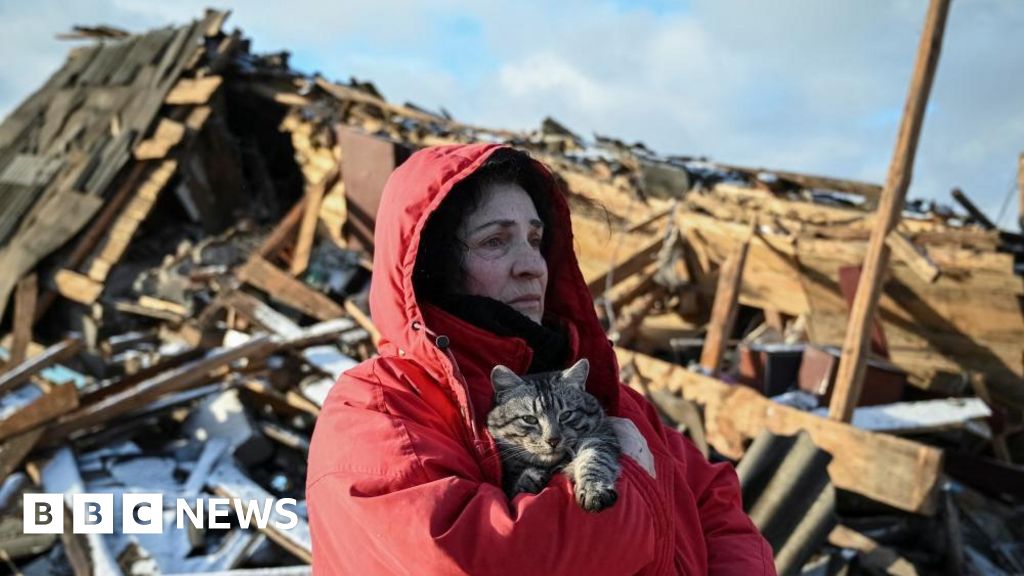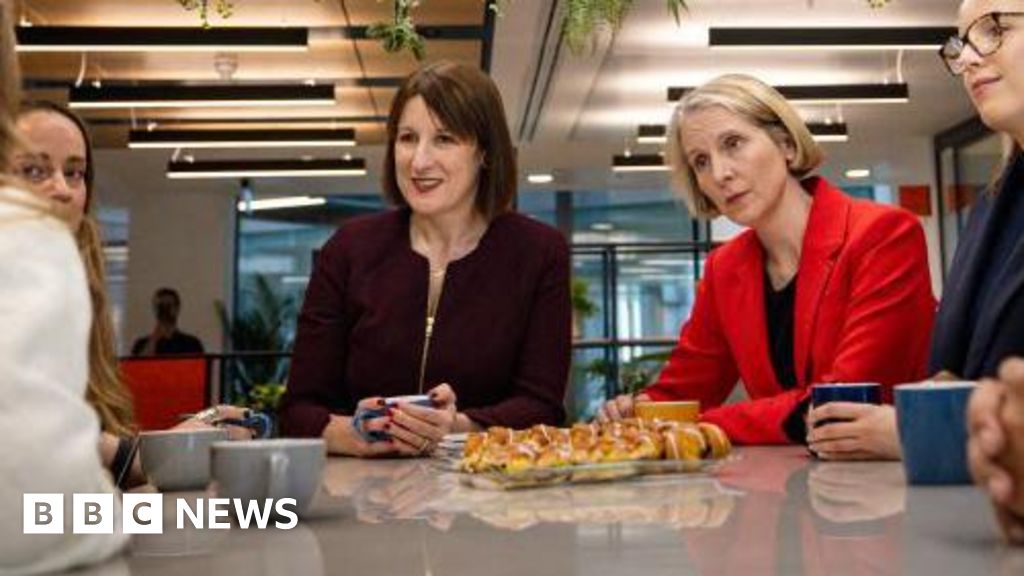ARTICLE AD BOX
By Georgina Rannard
BBC News
Image source, Getty Images
Image caption, Companies cut down trees to create grazing land to feed the world's hunger for meatA group of leaders at COP26 will sign the climate change conference's first major deal on Tuesday when they promise to stop deforestation by 2030.
Signatories in Glasgow will include Brazil, where large parts of the Amazon rainforest have been cut down.
Felling trees contributes to climate change because it depletes forests that absorb vast amounts of the warming gas CO2.
More money is also promised to protect and restore forests.
More than 100 countries say they will sign the pledge, covering around 85% of the world's forests.
And governments of 28 countries will commit to remove deforestation from the global trade of food and other agricultural products like palm oil, soya and cocoa.
These industries drive forest loss by cutting down trees to make space for animals to graze or crops to grow.
UK Prime Minister Boris Johnson, who is hosting the global meeting, will call it a "landmark agreement to protect and restore the earth's forests".
"These great teeming ecosystems - these cathedrals of nature - are the lungs of our planet," he was expected to tell the event.
"It is good news to have a political commitment to end deforestation from so many countries, and significant funding to move forward on that journey," Prof Simon Lewis, an expert on climate and forests at University College London told BBC News.
But he said the world "has been here before" with a declaration in 2014 in New York "which failed to slow deforestation at all".
This declaration does not tackle growing demand for products like meat grown on rainforest land which would require tackling high levels of meat consumption in countries like the US and UK, Prof Lewis adds.
"This deal involves more countries, more players and more money. But the devil is in the detail which we still need to see," explains Ana Yang, Executive Director at Chatham House Sustainability Accelerator, who co-wrote the report Rethinking the Brazilian Amazon.
"This is a really important step at COP26. This meeting is around increasing the level of ambition and keeping global temperature rises below 1.5C - this is a big building block," Ms Yang suggests.
What is in the forests deal?
To stop deforestation and break the link between tree loss and agriculture, almost £14bn ($19.2bn) of public and private funding is being pledged.
Some of this will go to developing countries to restore damaged land, tackle wildfire and support indigenous communities.
More than 30 of the world's biggest companies will commit to end investment in activities linked to deforestation.
And a £1.1bn fund will be established to protect the world's second largest tropical rainforest - in the Congo Basin.
COP26 climate summit - The basics
- Climate change is one of the world's most pressing problems. Governments must promise more ambitious cuts in warming gases if we are to prevent greater global temperature rises.
- The summit in Glasgow is where change could happen. You need to watch for the promises made by the world's biggest polluters, like the US and China, and whether poorer countries are getting the support they need.
- All our lives will change. Decisions made here could impact our jobs, how we heat our homes, what we eat and how we travel.
Tuntiak Katan, coordinator of the Coordination of Indigenous Communities of the Amazon Basin, welcomed the deal telling BBC News that indigenous communities are on the frontline of stopping deforestation.
Mr Katan, an indigenous Shuar from Ecuador, said indigenous communities globally protect 80% of the world's biodiversity but face threats and violence: "For years we have protected our way of life and that has protected ecosystems and forests. Without us, no money or policy can stop climate change," he explained from COP26.
Who will sign the pledge?
More than 100 countries will promise to halt deforestation including Canada, Brazil, Russia and Indonesia.
Indonesia is the world's largest exporter of palm oil, a product found in everything from shampoo to biscuits. Production is driving tree destruction and territory loss for indigenous people.
While Russia's huge natural forests, with more than one-fifth of the planet's trees, capture more than 1.5 billion tons of carbon annually.
In the planet's biggest rainforest, the Amazon, deforestation accelerated to a 12-year-high in 2020 under President Jair Bolsonaro.
"Having Brazil signing the deal is really important because it holds a large chunk of tropical forests. But the money must be channelled to people who can make this work on the ground," Ana Yang at Chatham House explains.
Many people living in the Amazon, including in its urban areas, depend on the forest for their livelihoods and they need support in finding new incomes, she suggests.
Why is stopping deforestation so important?
Trees are one of our major defences in a warming world. They suck carbon dioxide out of the atmosphere, acting as so-called carbon sinks. They absorb around 1/3 of global CO2 emitted each year.
Currently an area of forest the size of 27 football pitches is lost every minute.
And if depleted a forest can also start to release CO2. If too many trees are cut down, scientists are worried that the planet will reach a tipping point that will set off abrupt and unpredictable climatic change.

 3 years ago
77
3 years ago
77








 English (US) ·
English (US) ·